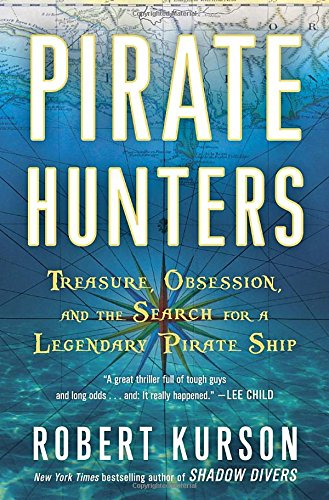A Pirate’s Life is Not for Me
Jared Richards, Learning and Information Services Supervisor

A couple weeks ago was International Talk Like a Pirate Day. Inspired by this, I started playing a video game about pirates. You get to sail the seas, find treasure, fight skeletons and krakens, and defend your ship against other players. Despite the theme of the game, it turns out I’m not terribly interested in being a pirate. It can take hours to complete quests and find treasure, and having that stolen from you can be frustrating. I don’t need that level of stress, so I spend my time fishing from the bowsprit of my ship, while reading and listening to books about pirates. I prefer my pirating to take place vicariously.
Joseph Bannister was a respected merchant captain, trusted to make transatlantic voyages between London and Jamaica, with expensive cargo. In 1684, he gave that up, stealing his ship, the Golden Fleece, and becoming a pirate. Over the next three years he was captured, escaped by stealing his ship a second time, and won a battle against two Royal Navy ships, before finally being captured again.
During the battle with the Royal Navy, the Golden Fleece was sunk, and seemingly lost to history for over 300 years. “Pirate Hunters” by Robert Kurson follows the story of two shipwreck hunters, John Chatterton and John Mattera, as they search for the final resting place of Bannister’s ship.
Kurson goes into great detail describing the increasingly expensive and technologically advanced process of searching for shipwrecks. He takes the same amount of care in telling the stories of Chatterton and Mattera, from childhood to professional successes, and the path that led them to this latest hunt. It’s written in such a way that pulled me in and made me stay up late because I wanted to know what was going to happen next. The audiobook is narrated by Ray Porter, who is very easy to listen to, but the physical book has some neat pictures. You should probably just check out both.
I’d heard the terms before, but only recently did I learn the difference between a pirate and a privateer. That difference is a government issued piece of paper that says the latter is allowed to do all the pirate stuff legally, on behalf of the government. Privateers were basically used in place of a large naval force, which would be hard to maintain, in order to protect a foreign country’s interests overseas. “The Pirates’ Pact” by Douglas R. Burgess, Jr. goes into detail about the interesting, and precarious, nature of these relationships, focusing on colonial America.
Diving deeper into the history of pirates, and learning about the exploits of Henry Morgan, Blackbeard, and Edward Low, made me think of a pirate from my childhood, Captain Hook. I revisited him in “The Annotated Peter Pan” by J. M. Barrie, edited by Maria Tatar. Barrie developed the character of Peter Pan in the early 1900s. First mentioned in “The Little White Bird” in 1902, Pan took center stage in a successful play in 1904, with the novel following in 1911.
This annotated version is fantastic. Along with the insightful annotations of the story, it also includes a history of the story, the original pen-and-ink illustrations by F. D. Bedford, and a survey of the films, and much more.
My memory of the story had been obscured by the Disney film, which I watched countless times growing up. And then I kept growing up, despite my best efforts. As is often the case with old stories, the original story is a bit darker, including a lot more death than I remember. It isn’t anywhere on par with actual pirates, but I guess it’s fitting for a story featuring a fictional one, even if it’s a children’s story.
None of the books I’ve come across so far in the Manhattan Public Library’s large collection of pirate books, have made any attempt to capture a pirate’s speech. Luckily, we have Mango Languages, offering courses in over seventy languages, including Pirate. I like to mention this resource to the other players in my video game, who I can only generously assume are attempting to speak like a pirate. There’s little evidence they have listened to me.
I may not want to act like a pirate, but the library is a great place to learn about pirates. Being a few centuries removed from the Golden Age of Piracy (1650 – 1730), and their questionable behavior, has turned their incredible exploits into an intriguing curiosity, rather than a terrifying reality.

